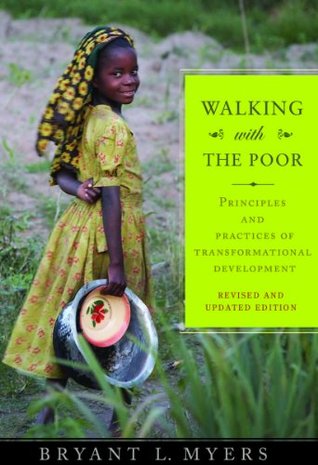More on this book
Kindle Notes & Highlights
We need to be quiet and listen in the midst of all the information we have gathered to see if God has anything so say, if there is anything in particular to which God might want to call our attention. We need to immerse our work of development and evaluation in a covering of prayer that asks that we may have eyes to see and ears to hear. We need a stance that is open to God leading us to the information and conclusions that God deems to be important. We need to use the Bible, as the living word of God, in our monitoring, evaluating, and reflecting. What might we hear from the word that is
...more
The bottom line is that we need to be concerned about who gets worshiped at the end of the development program. Jayakumar Christian reminds us that whatever we put at the center of the program during its lifetime will tend to be what the community worships in the end (1998b).
The idea of living and doing development in a way that evokes questions to which the gospel is the answer addresses the second of my twin challenges for Christian witness in the context of transformational development. When water is found in the desert, when children no longer die, when water no longer makes people sick, something has happened that needs an explanation. When trained professionals live in poor villages and everyone there knows they could be making more money and their children could go to better schools in the city, this odd behavior provokes a question. The explanation is the
...more
This avoids Tillich's complaint that “it is wrong to throw answers, like stones, at the heads of those who haven't even asked a question.”
When we stand outside the text and look into it as a resource from which we pick and choose, we are putting ourselves above the text. This stance is exemplified both by historical criticism and by those who favor proof-texting as a tool of persuasion.
In using the Bible in the communities, World Vision Philippines operates under the following assumptions: • God is already at work in the community. • Members of the community have accumulated a great deal of wisdom about all areas of life, including spiritual perspectives on life. • The community is solely responsible for its own spiritual pilgrimage. • People in community are capable of making their own application of spiritual truth to their local situation. • The local churches have the major responsibility for contributing to the spiritual nurture of the community and hence
...more
The Seven Steps approach has a Bible-to-life orientation and is an adaptation of an ancient approach to praying the scriptures called Lectio Divina. In the first centuries of the Christian church the Bible was experienced as the spoken word in four movements: reading aloud, meditation (reflection), prayer, and contemplation (God's presence beyond the words).
McIlwain decided to resequence the Bible chronologically so that it could be told as an epic story, beginning with creation in Genesis and ending with the second coming of Christ in Revelation. The result is a chronological teaching outline that tells the whole salvation story so that it builds a foundation on which a person, who has never heard ofJesus or of Israel or been to a city, can say with understanding, “Yes, I believe.” McIlwain understood that it is the whole of our story as Christians that reveals the character and activity of the God of the Bible in human history. “The story of
...more
When women believe the gospel in Colombia, the way they act and witness leads to the erosion of the machismo culture of the men. This means less drinking and womanizing, which in turn means more surplus cash. The women invest this surplus in micro-enterprise, and the household income increases (Brusco 1986). This is transformational development at its best; we cannot tell where the spiritual and material change begin and end.
Governments in the West are worried about Christians being involved in development because they are afraid Christians will use their aid as a tool to encourage people to change their faith. To use aid to promote a particular religion is not appropriate, they say. And, of course, they are right. Any Christian would agree.


